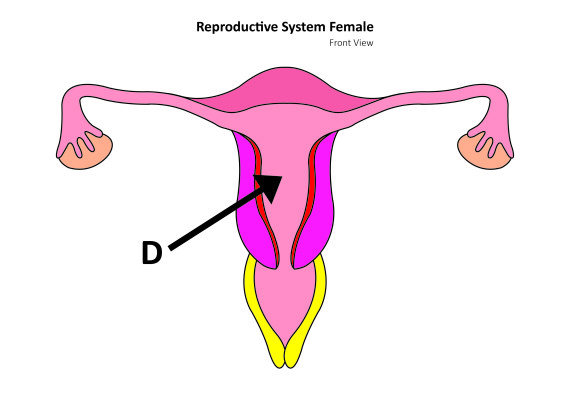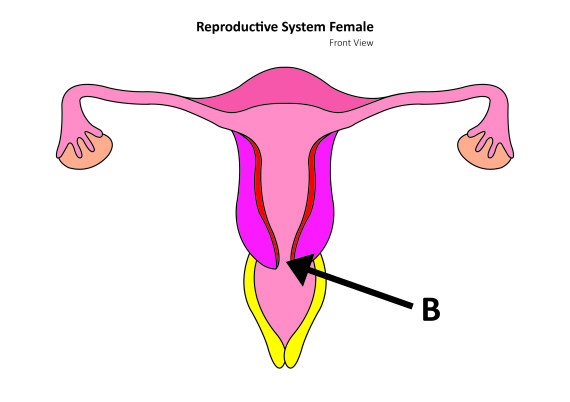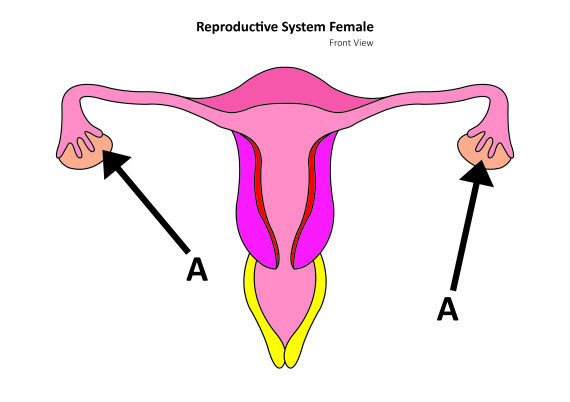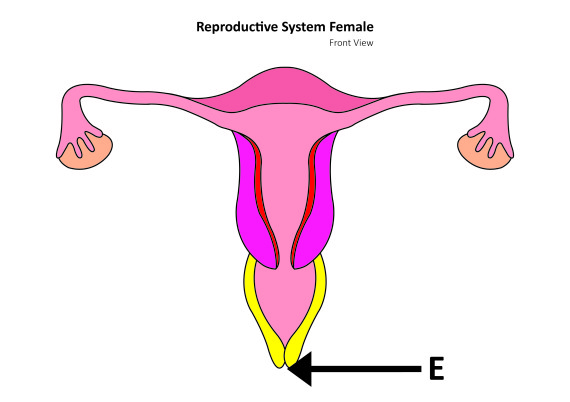Ladies, we need to sort this out.
As part of Gynaecological Cancer Awareness Month, we’ve got the lowdown on the five types of vaginal cancer including what they are, who’s at risk and how to spot them:
Womb Cancer
What is it?
Cancer of the lining of the womb. Womb cancer is the fourth most common cancer in women in the UK and is on the increase each year due to changes in our lifestyles. Over 7,500 women are diagnosed every year in the UK.
Cancer of the lining of the womb. Womb cancer is the fourth most common cancer in women in the UK and is on the increase each year due to changes in our lifestyles. Over 7,500 women are diagnosed every year in the UK.
What are the symptoms?
:: Vaginal bleeding after the menopause
:: Vaginal bleeding between periods
:: Vaginal bleeding after the menopause
:: Vaginal bleeding between periods
Cervical Cancer
What is it?
Cervical cancer develops on the cervix which connects a woman’s womb and her vagina. It can affect women of all ages but is most common in women between 30-45 years of age and is very rare in women under 25 years of age.
Cervical cancer develops on the cervix which connects a woman’s womb and her vagina. It can affect women of all ages but is most common in women between 30-45 years of age and is very rare in women under 25 years of age.
What are the symptoms?
:: Any unusual bleeding from the vagina particularly: after sex and after menopause when periods have stopped
:: Persistent vaginal discharge that is blood stained or smells unpleasant
:: Any unusual bleeding from the vagina particularly: after sex and after menopause when periods have stopped
:: Persistent vaginal discharge that is blood stained or smells unpleasant
Ovarian Cancer
What is it?
Ovarian cancer is the fourth most common cause of cancer death in women and accounts for more UK deathsa
Ovarian cancer is the fourth most common cause of cancer death in women and accounts for more UK deathsa
Vaginal Cancer
What is it?
Vaginal cancer is a very rare disease – just 250 cases are diagnosed in the UK each year – and is most commonly diagnosed in women over 60 years of age. Vaginal cancer occurs when the cells in the lining of the vagina change – often these changes are not enough to make the cells cancerous, however if left untreated they could be harmful.
Vaginal cancer is a very rare disease – just 250 cases are diagnosed in the UK each year – and is most commonly diagnosed in women over 60 years of age. Vaginal cancer occurs when the cells in the lining of the vagina change – often these changes are not enough to make the cells cancerous, however if left untreated they could be harmful.
What are the symptoms?
:: Bleeding when you are not having a period or bleeding after the menopause- this is the most common symptom. You may also have bleeding after sex
:: Vaginal discharge that smells or is blood stained - about 3 out of 10 women (30%) have this symptom
:: Pain during sexual intercourse
:: A lump or growth in the vagina that you or your doctor can feel - up to 1 in 10 women (10%) have this
:: A vaginal itch that won’t go away
:: As many as 20 per cent of women diagnosed with vaginal cancer have no symptoms at all and many of the above symptoms are far more likely to be due to other conditions, such as infections
:: Bleeding when you are not having a period or bleeding after the menopause- this is the most common symptom. You may also have bleeding after sex
:: Vaginal discharge that smells or is blood stained - about 3 out of 10 women (30%) have this symptom
:: Pain during sexual intercourse
:: A lump or growth in the vagina that you or your doctor can feel - up to 1 in 10 women (10%) have this
:: A vaginal itch that won’t go away
:: As many as 20 per cent of women diagnosed with vaginal cancer have no symptoms at all and many of the above symptoms are far more likely to be due to other conditions, such as infections
Vulval Cancer
What is it?
Cancer of the vulva is one of the more rare cancers with just over 1,000 cases diagnosed in the UK each year. Around 80% of vulval cancers are diagnosed in women over 60, but the stage before the cancer has developed tends to be diagnosed earlier, in women aged 30-50.
Cancer of the vulva is one of the more rare cancers with just over 1,000 cases diagnosed in the UK each year. Around 80% of vulval cancers are diagnosed in women over 60, but the stage before the cancer has developed tends to be diagnosed earlier, in women aged 30-50.
What are the symptoms?
:: A lasting itch
:: Pain or soreness
:: Thickened, raised, red, white or dark patches on the skin of the vulva
:: An open sore or growth visible on the skin
:: Burning pain when you pass urine
:: Vaginal discharge or bleeding
:: A mole on the vulva that changes shape or colour
:: A lump or swelling in the vulva
:: A lasting itch
:: Pain or soreness
:: Thickened, raised, red, white or dark patches on the skin of the vulva
:: An open sore or growth visible on the skin
:: Burning pain when you pass urine
:: Vaginal discharge or bleeding
:: A mole on the vulva that changes shape or colour
:: A lump or swelling in the vulva
source:http://www.huffingtonpost.co.uk/





Comments
Post a Comment